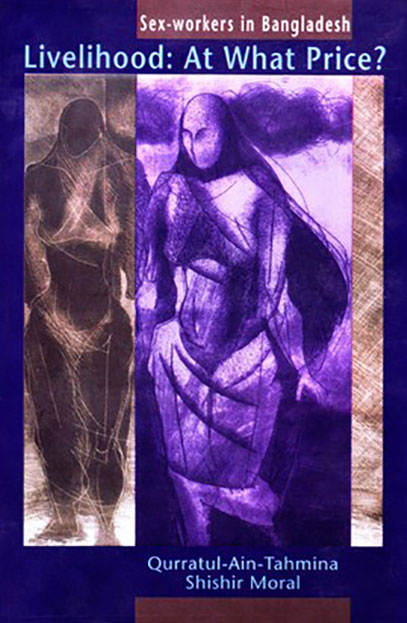
- Shop
- Sex-workers in Bangladesh Livelihood: At What Price?
Sex-workers in Bangladesh Livelihood: At What Price?
| Language: English |
Tags :
Book Info
Surveys find that compared to other Asia countries sex-workers in Bangladesh report the highest number of partners, and the lowest rate of condom use. While these statistics are serious warning signals for a probable HIV/AIDS epidemic, the overwhelming majority of sex-workers have other immediate concerns such as poverty, threats of eviction from brothels, extreme uncertainties in city streets, total rejection by society, and exploitation by the controllers ( the police topping the list) of the trade. This work is much more than a translated version of the Bangla book, published in 2000, that we had named Bangladeshe Jounata Bikri: Jiboner Dame Kena Jibika. A literal translation of the title would be: Selling Sex in Bangladesh: Livelihood Bought at the Price of Life. The statement made in the Bangla title might seem sentimental to some, but it catches the essence of what we learnt about the life and livelihood of the women pushed into an existence of social outcasts, and subjected to extreme violence, exploitation and deprivation. Our journalistic explorations into the various aspects and issues of sex-work in Bangladesh began in 1999. The five long years since then have only deepened our depressing conviction that this is a livelihood that denies a sex worker her entire life. And just as five years ago, we find that we cannot stick to the impartial, dispassionate approach for our profession- journalism! And yet we are grateful for the experience. This experience has given us an uncomfortable picture of the duality of our social morality; it has also given us a chance to get to know women who are remarkable and respectable. This indeed is reality. Without this exposure, our understanding of life itself and the world we live in would have been very limited. One clarification: When we talk about sex-workers in this book, we refer to the majority who are poor. We have not looked into the situation of relatively better-off sex-workers who would be a small minority anyway. The other issue that needs clarification of our view is the gradually forming debate on legalisation and social recognition of sex-work. While the first chapter of this book gives space to this debate, we the writers are unequivocally with the sex-workers on this very sensitive question. We cannot but side with them, and that is not just for emotional reasons. Society for environment and Human Development (SEHD) has given us an opportunity to conduct this journalistic research, first in 1999-2000, and then in 2003-2004. Professor Shawkat Hussain of the English department, Dhaka University, carried out the painstaking job of editing the text. We cannot thank them enough. W are also grateful to the various organisations and persons who gave us information and help at different stages of our work. This work is more about sex-workers, than on sex-work. We feel deeply honoured that some of the women we write about now regard us as their friends. Two of them, Hazera and Kajol, have been part of the team preparing the English version. Their contributions have made this version essentially richer than the Bangla one. We cannot even begin to thank them and their sisters. We can only hope to be worthy of the trust and friendship that they continue to offer us.




